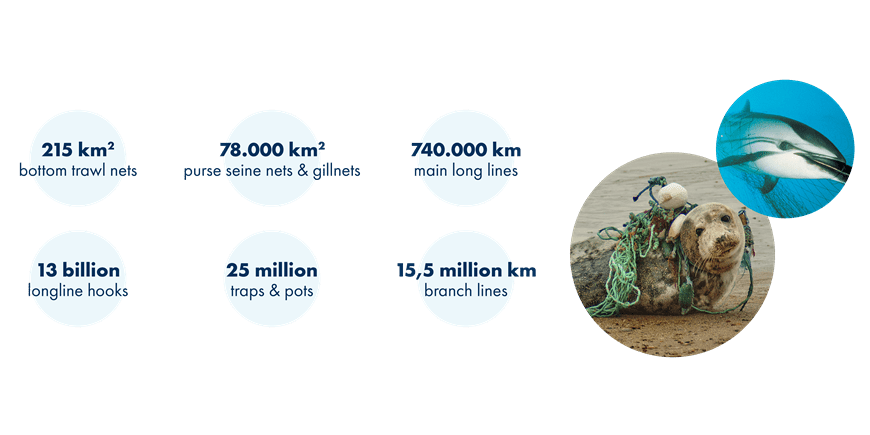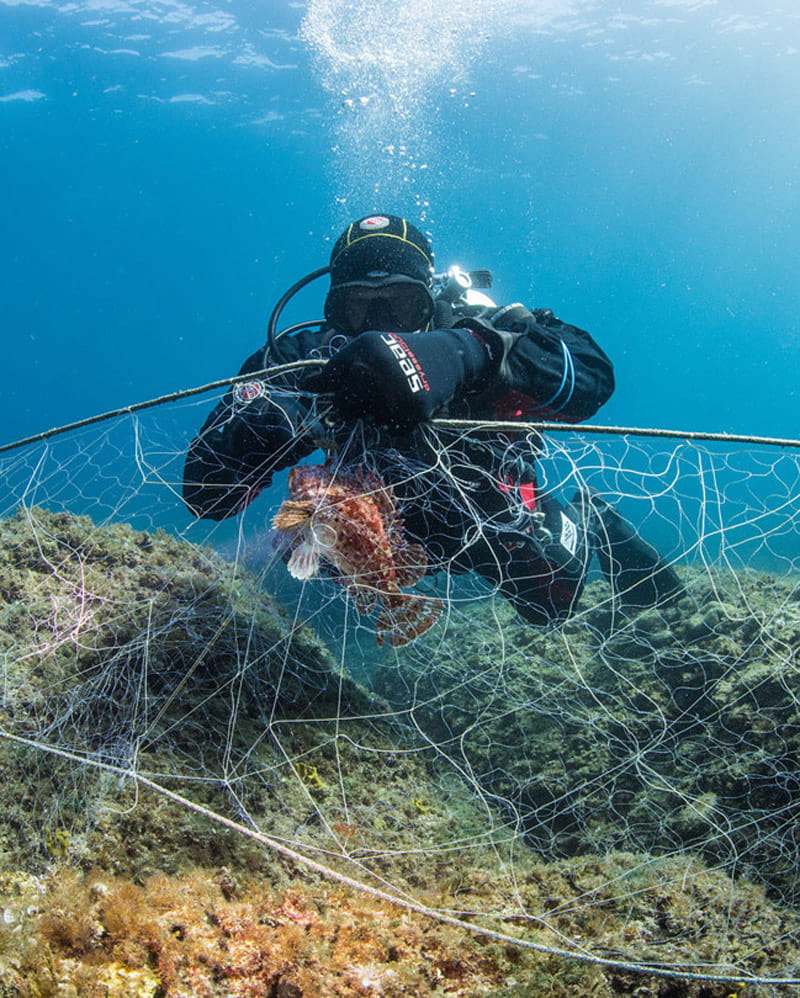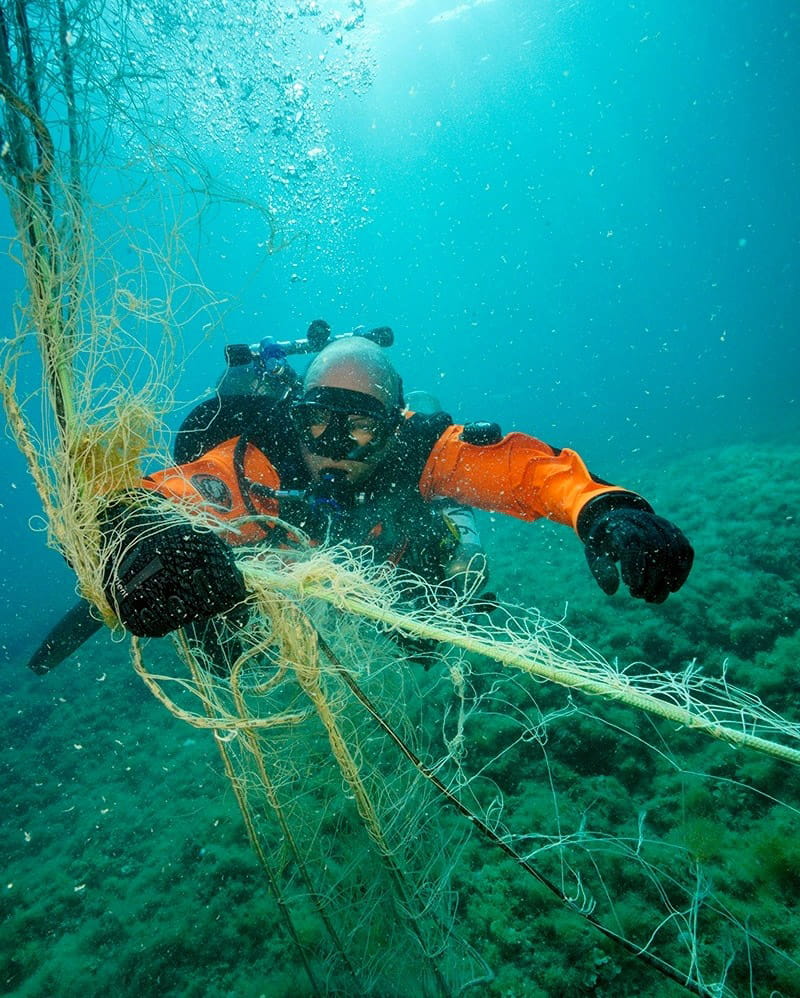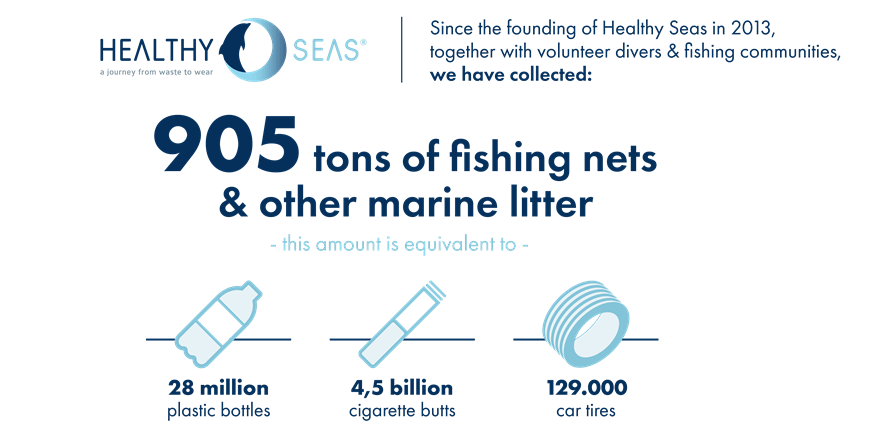Ghost fishing nets are killing thousands of marine animals
Abandoned, lost, or otherwise discarded fishing gear also known as ‘ghost fishing gear’ is a major contributor to ocean pollution. Nearly 2% of all fishing gear ends up in the oceans annually, a new research study has found (1). The numbers are absolutely astounding:

That is enough commercial fishing line to the moon and back and enough nets to cover Scotland. If all types of the lost line were tied together, it would be able to stretch around the Earth 18 times.
Recognising that fishing gear is designed to catch and kill marine life, it is inevitable that this results in millions of trapped and killed marine animals, such as sharks, rays, sea turtles, dolphins, whales, crustaceans, and sea birds. A single abandoned net is estimated to kill an average of 500,000 marine invertebrates (think crabs and shrimp), 1,700 fish and four seabirds.
(1) K. Richardson, B.D. Hardesty, J. Vince, C. Wilcox, “Global estimates of fishing gear lost to the ocean each year,” Science Advances. (2022)





